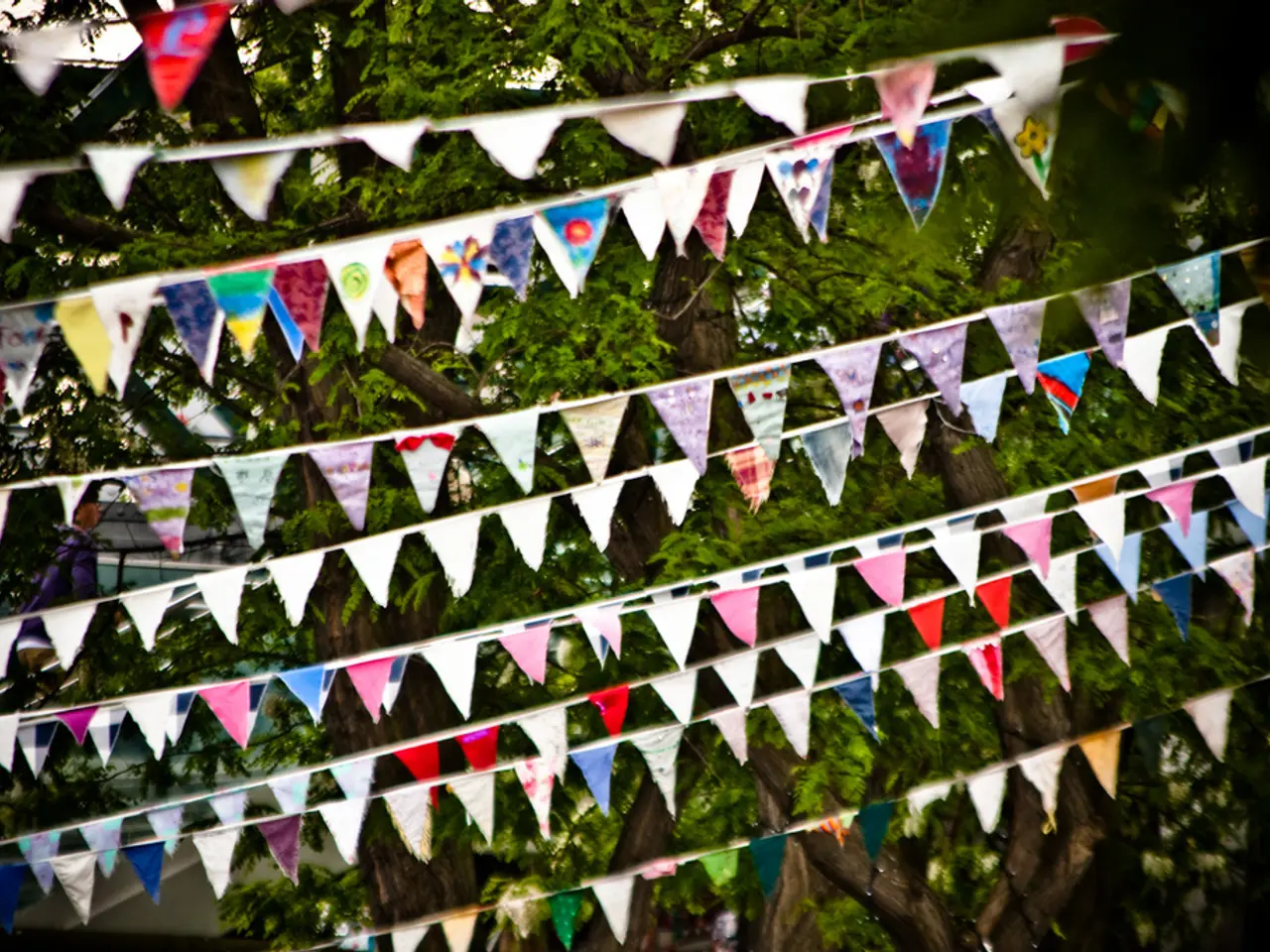Top 12 Outdoor-Friendly, Naturally Sourced Crafting Materials to Inspire Awe in Your DIY Masterpieces
In the spirit of sustainability and creativity, discover the world of DIY projects using natural materials. This comprehensive guide, published by kasuwa, offers a wealth of inspiration for your next crafting adventure.
Painting Nutshells
Whether you prefer a rustic appeal or a touch of metallic sheen, painting nutshells can add unique charm to your crafts. Simply choose your preferred color scheme and let your creativity shine!
Homemade Clay
Craft bowls, pinch pots, or decorative sculptures using your very own eco-friendly modeling clay. Made from ingredients as simple as baking soda, cornstarch, coffee grounds, and water, this DIY clay is a sustainable and cost-effective alternative to store-bought options.
Protecting Natural Fibers
When working with natural fibres like hemp in outdoor projects, it's essential to apply waterproof sealants to ensure their longevity.
Natural Dyes
Learn to create vibrant, natural dyes from everyday plants and botanicals such as beets, turmeric, onion skins, spinach, blueberries, walnut husks, cabbage, and avocado pits. These dyes can be used to colour your homemade clay or textiles, adding a touch of nature to your creations.
Preserving Autumn Leaves
Autumn leaves offer a rich palette of colours. Preserve them for wreaths, garlands, and pressed leaf art displays by drying them thoroughly and storing them between acid-free paper sheets in dark containers.
Collecting Seasonal Materials
Gather new leaves and tender branches in spring and early summer for nature-inspired mobiles, wreaths, and eco-printing projects. In winter, collect seed pods, dried grasses, and berries for winter wreaths and textured arrangements. Store these materials in airtight containers with moisture-absorbing sachets to maintain their freshness.
Creating Watercolour-Style Paints
Mix ground pigments with gum arabic or egg whites to create watercolour-style paints, perfect for adding delicate details to your crafts.
Protecting Wooden Items
Seal wooden items with natural beeswax or linseed oil to protect against moisture damage. For added durability, apply an eco-friendly varnish.
Creating Natural Inks
Combine concentrated plant dyes with vinegar to create natural inks, ideal for hand-lettering or stamp-making.
Collecting Holiday Decorations
Collect pinecones, needles, and branches in autumn to create holiday decorations and natural ornaments. In spring and early summer, gather blooming flowers for pressed flower art, botanical prints, and handmade paper decorations.
3D Sculptures
Combine various sizes and shapes of nuts and shells using strong craft adhesive to design 3D sculptures, adding natural texture and dimension to your projects.
Collecting and Storing Acorns and Pinecones
Store acorns and pinecones in airtight containers to prevent moisture absorption. To absorb excess moisture, create silica gel packets using dried rice in small fabric pouches.
Labeling Storage Containers
Label storage containers with collection dates and material types for easy organization. This will help you keep track of your materials and make your crafting sessions more efficient.
Moss and Maple Helicopter Seeds
In spring and early summer, use fresh moss to design miniature fairy gardens or terrariums, while collecting maple "helicopter" seeds for unique jewelry designs.
Storing Pressed Botanicals
Store pressed botanicals between acid-free paper sheets in dark containers to preserve their colour and prevent fading from sunlight exposure. Apply a UV-resistant coating for added protection.
Checking for Decay and Pest Infestation
Regularly check stored items, such as nuts and seeds, for signs of decay or pest infestation. This will help you maintain the quality of your materials and prevent any issues from spreading.
Wood Storage
Keep wood materials in climate-controlled areas with consistent temperature and humidity to prevent warping or cracking. Dry materials thoroughly before applying protective coatings to prevent mold growth.
With these tips and techniques, you're now equipped to embark on a variety of DIY projects using natural materials. Happy crafting!
Read also:
- In proximity to Paris lies a suburban gem, recently crowned as the top destination of 2025, boasting a remarkable market within its borders.
- Tale of Solitary Existence: Christopher Thomas Knight, the 'Maine Hermit' Who Vanished From Society for a Quarter-Century
- Developing material that fosters credibility amidst a skeptical society
- Annual assembly of Miduty's Wonder Women concludes in Gurugram for the year 2025






